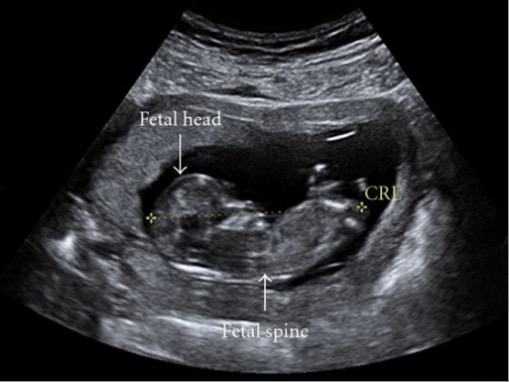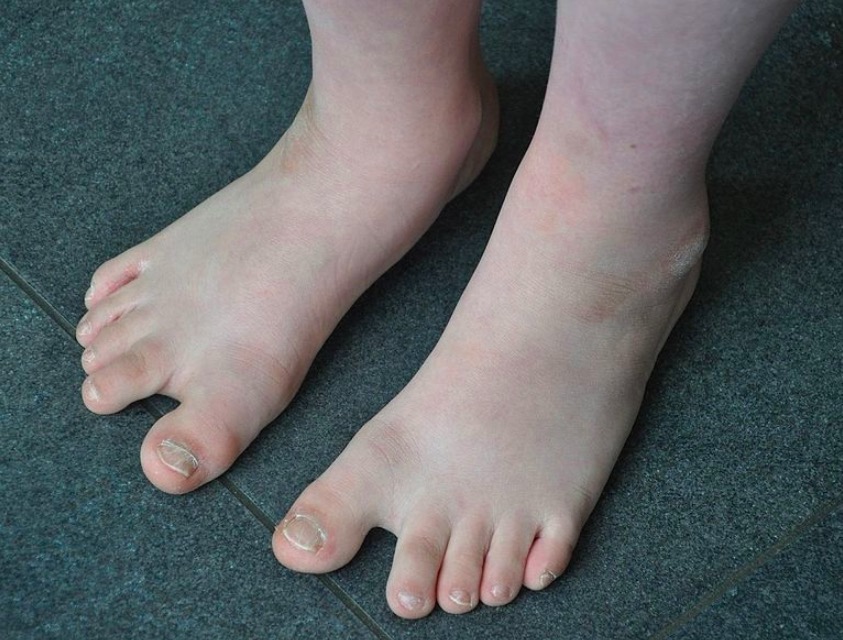Playlist
Show Playlist
Hide Playlist
Trisomy 21: Prenatal Screening
-
Slides Trisomy 21.pdf
-
Download Lecture Overview
00:01 So, how do we screen for patients with Down syndrome? It is common especially in mothers on advanced age to do standardized routine screening for Down syndrome. 00:12 Generally, we will try to screen in the first trimester, or in the second trimester we can do the triple or quadruple screen, that?s very important. 00:21 Also, we can do a level II fetal ultrasound. 00:25 Screening identifies infants who are at risk for potential Down syndrome. 00:32 It is not diagnostic, and there?s an absolutely false positive rate. 00:36 If they don?t want to ever do invasive testing, there?s a probably no role for screening. 00:43 But if they do want to do invasive testing then the screen is a reasonable thing to do because the next step would be to invasively test and see if that infant truly has Down syndrome. 00:54 The way we would do definitive testing in the utero is generally through chorionic villus sampling this happen around 10 to 12 weeks of gestation or we can do amniocentesis around 16 to 20 weeks of gestation. 01:06 The idea is we're going and getting actual cells from the actual baby and then doing karyotype to figuring out what their genetic potential is. 01:15 So, we're gonna send that for karyotype. 01:17 Here?s a karyotype, this is how we would confirm a diagnosis or doing a utero diagnosis. 01:23 It confirms a centrally whether the patient has either a translocation or as a de novo 3 copies in the cell. 01:33 So, patients with Down syndrome have a longer and longer life expectancy now in the United States. 01:42 As we saw in 1983 the average life expectancy was 25 and then in 2002 it was 49. 01:49 A lot of these came from better standard therapies for a lot of the complication of these children. 01:55 We have to attend to their hearing loss and give them hearing implants or hearing aids if they?re having a problem with hearing. 02:05 Of course, we're gonna treat their hypothyroidism aggressively. 02:08 One final complication in adulthood that I like to mention is early onset Alzheimer?s disease, this is very prevalent and it happens in about 10% of 50 year old with trisomy 21 and even 75% of 60 years old with trisomy 21. 02:23 It happens because the Amyloid Precursor Protein gene or APP is actually on 21st chromosomes. 02:31 So, they have genetic pre-disposition to early onset Alzheimers. 02:35 Before I close, I wanna say something in general about patients with Alzheimer. 02:41 These children tend to be extremely happy, extremely loving, and wonderful to parent. 02:47 They live amazing and positive life and they have great attitude. 02:52 It?s really interesting that these children leave such happy lives. 02:57 One wonders if in many ways it might a blessing for a child with trisomy 21. 03:02 It?s something we should support these families, we should give them all the medical support they need and the social support they need. 03:10 But recognized that these children are valuable contributors to society. 03:14 They're wonderful kids. 03:16 Thanks for your time.
About the Lecture
The lecture Trisomy 21: Prenatal Screening by Brian Alverson, MD is from the course Pediatric Genetics.
Included Quiz Questions
Which of the following statements is true about prenatal trisomy 21 screening?
- A positive screen is an indication for amniocentesis
- A negative screen rules out the presence of trisomy 21, but a positive screen doesn’t rule it in
- A positive screen confirms the presence of trisomy 21, but a negative screen doesn’t rule it out
- Screening is only indicated in mothers over the age of 35
- A positive screen is an indication for termination of pregnancy
A 38-year-old pregnant woman has presented in the 2nd trimester. She is worried about her baby having Down syndrome. Which of the following is the best screening test for Down syndrome at this stage?
- Quadruple test
- Level II placental ultrasound
- Triple test
- Chorionic villus sampling
- Amniocentesis
A 38-year-old woman presents for an antenatal visit at 18 weeks' gestation. Which antenatal test can be done for a definite diagnosis of Down syndrome?
- Amniocentesis
- Chorionic villus sampling
- Triple test
- Quadruple test
- Targeted ultrasound examination
Customer reviews
5,0 of 5 stars
| 5 Stars |
|
2 |
| 4 Stars |
|
0 |
| 3 Stars |
|
0 |
| 2 Stars |
|
0 |
| 1 Star |
|
0 |
Thank you for your inspiring lecture. Love is the most valuable lesson we can learn from our patients and our teachers.
It's not common that I was touched by an USMLE lecture, but I want to thank Dr.Alverson to remind me that what we are dealing is not just the disease but the human.





